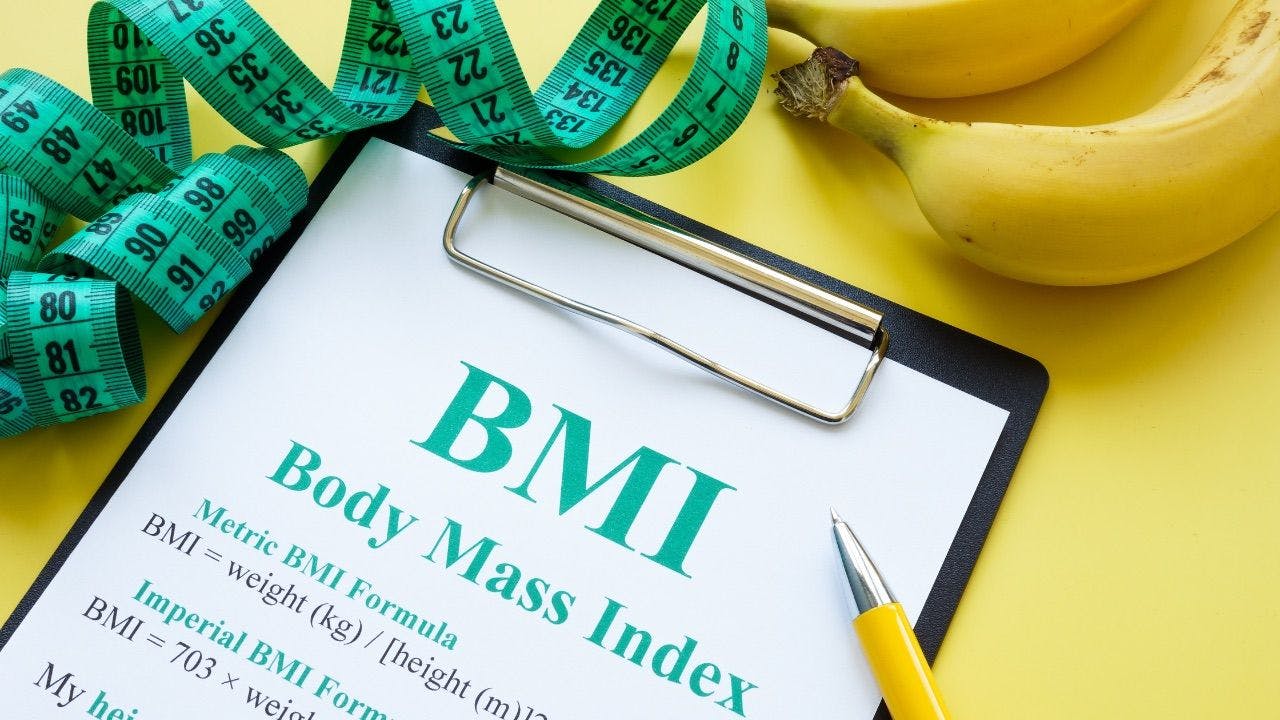The Truth Behind Your BMI
•Nutrition

Share
BMI stands for Body Mass Index, and it’s essentially a measurement of your body composition. People typically calculate this when they’re on a weight loss journey to ensure their goal weight falls under a healthy BMI. The calculation of your BMI doesn’t distinguish between your body fat and lean body mass though, so it’s not a complete science – it’s more of an indirect measure of your body fat.
How Do I Calculate My BMI?
Your BMI is determined by your weight to height ratio and is an indicator of whether you’re overweight, underweight or in a healthy weight range for your age group and gender. Divide your weight in kilos by your height in metres squared. So, if you're 70kg and 170cm tall, that's 70 divided by 2.89 (1.7x1.7), giving a BMI of 24.2. For both men and women, a healthy BMI is listed as being 18.5-24.9.
You can calculate yours with a calculator here.
What Most Don’t Realise
Measuring your waist circumference is crucial in getting a more accurate assessment of your BMI relative to your health. We all have a bit of fat around our abdomen, and it’s needed to protect our organs but too much is an indicator of poor health.
Why Waistline Matters
Even people with a healthy BMI can have excess abdominal fat, putting them at a higher risk for health issues. Measuring your waistline in addition to your BMI helps to determine your overall health because it can indicate whether you’re at risk of developing health issues. Measuring your waistline is helpful for assessing your overall wellbeing because a reduction in waist circumference often correlates with improvements in metabolic health regardless of BMI changes.
Belly Fat And Your Heart
Think about how close your belly is to your heart! Stored deep within your abdomen lives what’s called visceral fat, it surrounds organs such as your intestines, liver and pancreas. When someone has a ‘gut’, this is the result of too much visceral fat.
Too much visceral fat, or in simpler terms belly fat, can put you at risk of developing metabolic syndrome, which includes high blood pressure, high blood sugar and abnormal cholesterol levels. This also increases the risk of developing Type 2 diabetes and heart disease. Belly fat poses more health risks than other types of fat in our body.
BMI Myths
There’s a common misconception that having a high BMI means you’re unhealthy. A perfect example of this is if you perform weight training exercises. Think about bodybuilders, they typically have a low body fat percentage, but they weigh more because they have a lot of muscle, and muscle weighs a lot more than fat!
Having a low BMI is not a strong indicator of perfect health. Gender, age, muscle mass and those pesky hormones are all contributing factors to the number you’ll see. So, trust what you see in the mirror rather than your BMI for a more accurate reflection of your size.
Takeaways
Trust your gut! Well, the size of it anyway. Including your waist circumference when calculating your BMI will give you a far more accurate representation of your health. Remember, since your BMI doesn’t distinguish between body fat and lean muscle mass, you can’t compare it to someone else, even if you’re the same weight and height!




